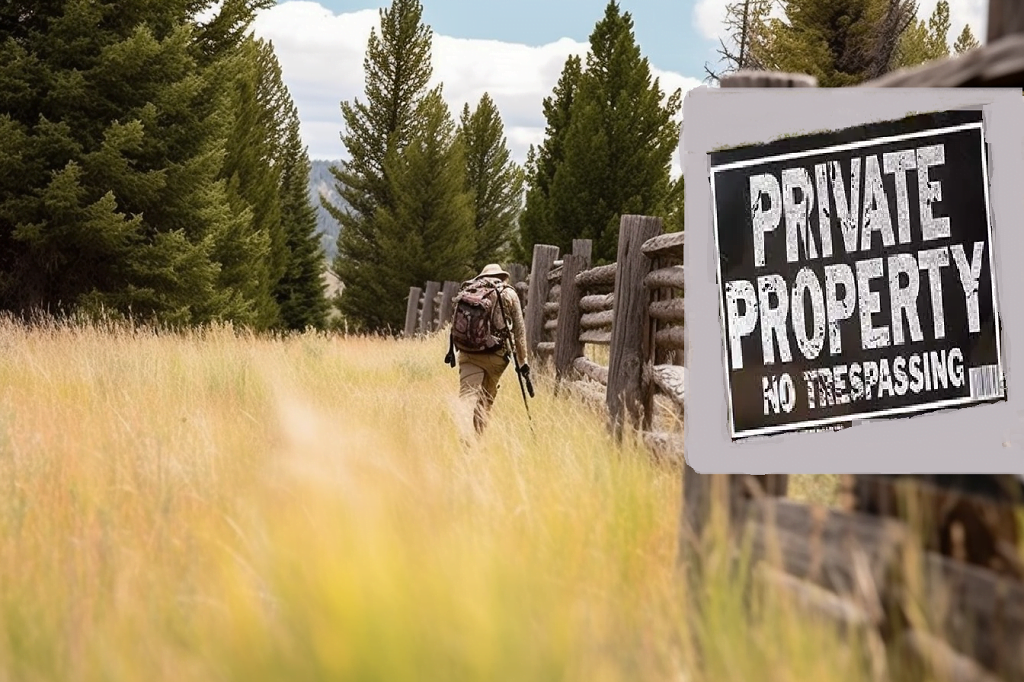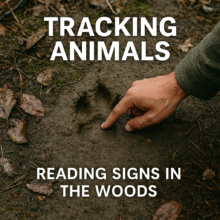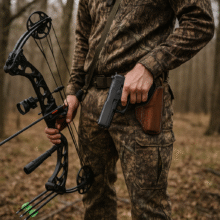How to Ask for Hunting Permission: A Guide to Seeking Access to Private Land

Table of Contents
- Table of Contents
- 1. Introduction: The Importance of Seeking Hunting Permission
- 2. Researching Potential Hunting Opportunities
- 3. Approaching Landowners with Respect and Consideration
- 4. Presenting Yourself as a Responsible and Trustworthy Hunter
- 5. Following up and Maintaining Good Landowner Relations
- 6. Frequently Asked Questions (FAQs)
- 7. Conclusion: Seeking Permission with Courtesy and Respect
Table of Contents
1. Introduction: The Importance of Seeking Hunting Permission
When it comes to hunting on private land, seeking permission from landowners is not only respectful but also essential for gaining access to desirable hunting areas. By obtaining permission, you showcase your dedication to ethical hunting practices, responsible land stewardship, and fostering positive relationships with landowners. Within this guide, we will delve into the process of requesting hunting permission. This includes researching potential hunting opportunities, approaching landowners with respect and consideration, and nurturing strong landowner relations to ensure long-term access.
2. Researching Potential Hunting Opportunities
Identifying Suitable Hunting Areas
Before approaching landowners, it’s important to identify suitable hunting areas that align with your hunting goals and target species. Research public lands, wildlife management areas, and hunting clubs in your region. Use topographic maps, satellite imagery, and online resources to locate areas with diverse habitat, abundant wildlife populations, and legal hunting opportunities.
Researching Landowners and Properties
Once you have identified potential hunting areas, gather information about the landowners and their properties. This can be done through online property records, county tax assessor’s office, or local hunting forums. Understanding who owns the land and their contact information will help you in the next step of approaching them for permission.
Understanding Hunting Regulations and Seasons
To ensure compliance with hunting regulations, it’s essential to familiarize yourself with the specific rules and seasons of your target area. Different regions have distinct regulations, such as bag limits, permitted hunting methods, and designated seasons for various game species. By adhering to these regulations, you demonstrate a commitment to responsible hunting practices. Additionally, it conveys your understanding of the local laws governing hunting, which can build rapport with landowners and show respect for their property.
3. Approaching Landowners with Respect and Consideration
Introducing Yourself and Building a Connection
When approaching landowners for hunting permission, it is important to introduce yourself in a respectful and courteous manner. Write a formal letter or make a phone call to express your interest in hunting on their property. Introduce yourself, provide a brief background about your hunting experience, and explain why you are interested in their land specifically. Personalize the conversation by mentioning any shared interests or connections, such as a love for the outdoors or a mutual acquaintance.
Expressing Your Interest in Responsible Hunting
To assure the landowner, it is essential to convey your responsibility and ethical approach as a hunter. Begin by explaining your commitment to adhering to hunting regulations, practicing safe firearm handling, and respecting their property and wildlife. Additionally, emphasize your dedication to conservation, land stewardship, and the principle of leaving the land in better condition. By highlighting any previous hunting experiences or successes, you can further demonstrate your responsible hunting practices and reinforce your credibility.
Addressing Concerns and Offering Benefits
Acknowledge any concerns the landowner may have regarding liability, property damage, or interference with other activities on their land. Offer to sign liability waivers, provide proof of insurance, or contribute to property maintenance efforts. Emphasize the benefits of allowing hunting, such as population control of game species, reduction of crop damage, or increased surveillance against trespassers.
4. Presenting Yourself as a Responsible and Trustworthy Hunter
Highlighting Your Experience and Skills
When asking for hunting permission, it’s important to showcase your hunting experience and skills. Provide details about your hunting background, including the number of years you have been hunting, the game species you have pursued, and any relevant certifications or training you have received. Discuss any hunting clubs or organizations you are a part of, as well as any previous landowner references who can vouch for your responsible hunting practices.
Providing References and Recommendations
If possible, provide references from other landowners or hunters who can speak to your responsible hunting behavior. A positive recommendation can significantly increase your chances of obtaining permission. Seek recommendations from individuals who can vouch for your ethical practices, respect for property boundaries, and positive contributions to the hunting community.
Demonstrating Respect for Property and Wildlife
Ensure that you communicate to the landowner your dedication to treating their property with the utmost respect. Emphasize the importance of respecting boundaries, fences, and posted signs, and complying with any specific rules or restrictions they may have in place. Highlight your unwavering commitment to ethical hunting practices, such as responsibly harvesting game, minimizing disturbance to wildlife, and leaving the land in a clean and undisturbed state.
5. Following up and Maintaining Good Landowner Relations
Expressing Gratitude for Permission Granted
If a landowner grants you permission to hunt on their property, it is essential to express your gratitude. Send a handwritten thank-you note or make a personal phone call to thank them for the opportunity. Express your appreciation for their trust and assure them that you will uphold the responsibilities associated with hunting on their land.
Providing Updates and Sharing Harvest Information
Maintain good communication with the landowner throughout the hunting season. Provide periodic updates on your hunting activities, including any significant observations or encounters with wildlife. If you are successful in harvesting game, share the details of your harvest and express your gratitude for the opportunity to enjoy the bounty of their land.
Offering Assistance and Building Long-Term Relationships
Go above and beyond by offering assistance to the landowner. Offer to help with property maintenance, such as clearing trails, repairing fences, or managing invasive species. Building a positive and long-term relationship with the landowner can lead to continued hunting access and the possibility of additional hunting opportunities in the future.
6. Frequently Asked Questions (FAQs)
1. Is it legal to hunt on private land without permission?
Ans. No, hunting on private land without permission is illegal and unethical. Always seek permission from landowners before hunting on their property to ensure compliance with the law and to maintain respectful relationships.
2. How can I increase my chances of obtaining hunting permission?
Ans. Increasing your chances of obtaining hunting permission involves presenting yourself as a responsible and trustworthy hunter. Highlight your hunting experience, provide references, and demonstrate your commitment to ethical hunting practices and land stewardship.
3. Should I offer to pay for hunting permission?
Ans. The decision to offer payment for hunting permission is subjective and depends on individual circumstances. In some cases, landowners may appreciate a small fee to help cover property expenses or wildlife management efforts. However, it is important to respect landowners who decline payment and focus on building a mutually beneficial relationship based on trust and respect.
4. What if a landowner denies my request for hunting permission?
Ans. Respect the landowner’s decision and thank them for their time. If possible, ask if there are any specific reasons for the denial and if there are any future opportunities for consideration. Be gracious and continue seeking hunting permission elsewhere.
5. Can I bring guests when I have permission to hunt on private land?
Ans. Bringing guests when hunting on private land should be done with the landowner’s permission. Ensure that all guests adhere to the landowner’s rules and regulations and demonstrate responsible hunting practices.
7. Conclusion: Seeking Permission with Courtesy and Respect
Asking for hunting permission is an important step in gaining access to private land and enjoying meaningful hunting experiences. By conducting thorough research, approaching landowners with respect and consideration, and presenting yourself as a responsible and trustworthy hunter, you increase your chances of obtaining permission. Remember to express gratitude, maintain good communication, and offer assistance to build long-term relationships with landowners. By seeking permission with courtesy and respect, you contribute to the positive reputation of hunters and foster a sense of stewardship for our hunting heritage. Happy hunting!







